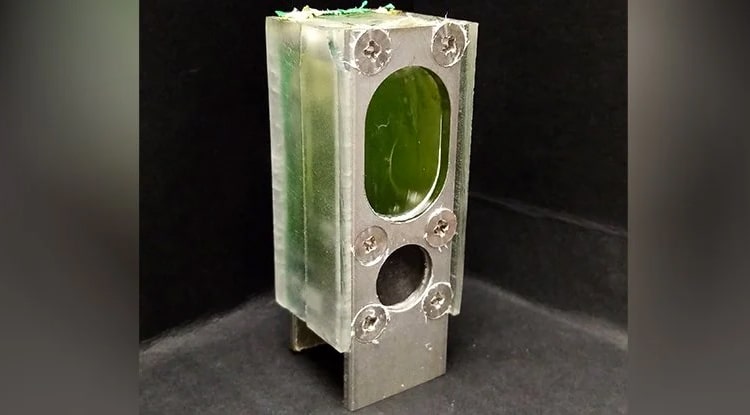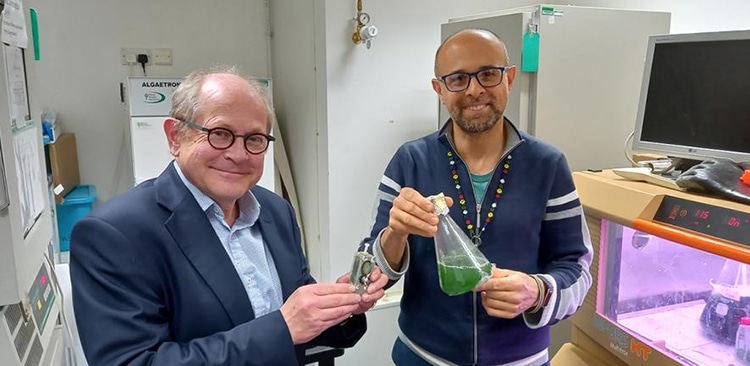(Photo:Bombelli/University of Cambridge)
Our 21st-century world is full of electronic devices communicating with each other.
This elaborate networkfrom the smallest motion sensor chips to your smartwatchis known as the Internet of Things.
Where will this energy come from?

The algae-powered cell. (Photo:Bombelli/University of Cambridge)
Researchers at the University of Cambridge have a potential, organic solution.
Batteries are unrealistic, as the ever-expanding power needs of devices will outstrip global lithium supplies.
Traditional batteries also have negative humanitarian and environmental impacts.

Professor Christopher Howe (left) and Dr Paolo Bombelli (right) with their photosynthetic device. (Photo:Paolo Bombelli/University of Cambridge,CC BY 3.0)
Luckily, other chemical reactions can produce power.
Researchers harnessed this powerful process on a minuscule level by creating a battery of algae.
The entire contraption was made of inexpensive, mostly recycled materials.
It is the size of a AA battery, but unlike a traditional battery it does not exhaust itself.
Under temperature fluctuations and natural light, the algae produced energy through photosynthesis.
The electrodes picked up this energy to power the mini computer.
Will you be able to buy algae batteries anytime soon?
Professor Christopher Howe (left) and Dr Paolo Bombelli (right) with their photosynthetic gadget.